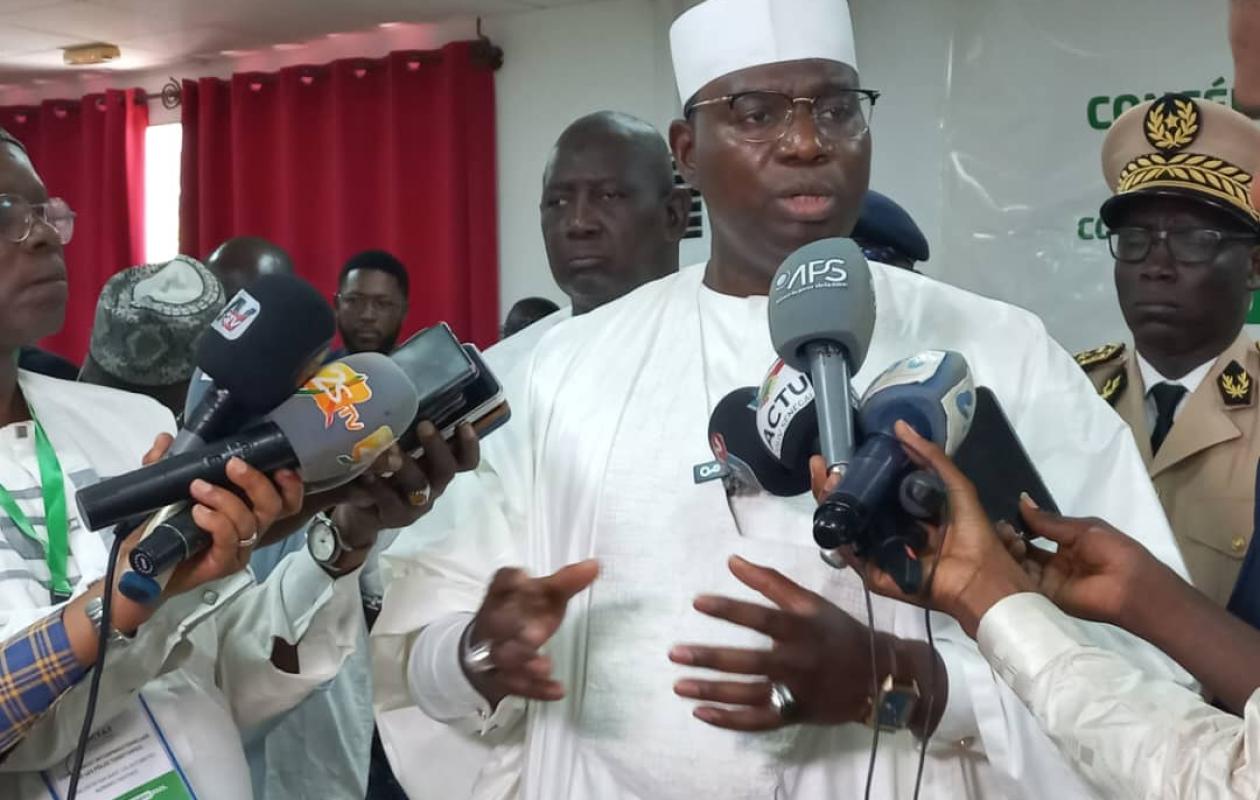
Réforme des Pôles Territoires : L’État veut en finir avec les déséquilibres
The Minister of Urban Planning, Local Authorities and Territorial Development, Balla Moussa Fofana, and his colleague from the Ministry of the Interior and Public Security, Mouhamadou Bamba Cissé, chaired a national workshop on the reform of Territorial Poles.
This meeting with Governors, prefects and deputies marks a decisive turning point in the re-establishment of territorial governance in Senegal.
Alongside the Minister of the Interior and Public Security, Mouhamadou Bamba Cissé, Minister Fofana called for "turning the page on territorial imbalances that are deepening inequalities" in order to "write together the page of a Senegal reconciled with its potential."
"The time has come to turn the page on the territorial imbalances that are deepening inequalities, to turn the page on a State that is too distant and fragmented, to turn the page on the unfulfilled promises made to our territories and their populations. We are here to write together the page of a Senegal reconciled with its potential. The reform of the Territorial Poles is a founding political act, a decisive turning point in the construction of the modern territorial State that we want," Minister Fofana immediately notes.
Indeed, under the leadership of the President of the Republic, Bassirou Diomaye Diakhar Faye, and the coordination of Prime Minister Ousmane Sonko, the government intends to make the Territorial Poles the new levers of integrated development and social justice.
"The Territorial Poles will be the new beating hearts of the nation, spaces for integrated planning, structuring investment and local governance," said Balla Moussa Fofana.
This reform, he added, is based on rigor, transparency and accountability. A Legality, Compliance and Monitoring-Evaluation Control Body will be created to guarantee the quality and performance of territorial public action.
He stated that: "We are putting an end to declarative governance and entering the era of verifiable governance, where every result counts and every territory is accountable for its progress."
Territorial Poles, instruments of economic sovereignty
Minister Fofana defined the Territorial Poles as "development basins where local potential becomes a source of collective prosperity and instruments of economic sovereignty to take back control of our productive destiny."
He praised the role of the State representatives on the ground, Governors, Prefects and Sub-Prefects, who according to him, are "the linchpins of the territorial Republic".
Because, he said: "it is through your daily action that the reform will take shape, that the texts will become realities, and that the promises will become results", while calling for "audacity, frankness and ambition" during the workshop discussions.
For his part, the Minister of the Interior and Public Security, Mouhamadou Bamba Cissé, stressed that this reform "is part of the implementation of the vision of the Head of State through the National Agenda for Systemic Transformation Senegal 2050".
"The reform of the Territorial Hubs is not a simple administrative restructuring. It is part of a national ambition to profoundly transform our modes of governance, to strengthen territorial coherence, complementarity between regions and proximity between the State and citizens. It aims to make territories true spaces of integrated development, by aligning the action of local authorities, decentralized State services and economic actors around the same dynamic," informed the Minister of the Interior, who also stated: "In this sense, this reform constitutes a major step forward in decentralization and devolution, by giving territories the means to fully express their potential in the service of national development."
This workshop, designed as a space for co-construction, brings together administrative authorities, local elected officials, and local stakeholders. It aims to harmonize approaches, share lessons learned from the consultations, and adopt a common roadmap for the effective implementation of the Territorial Hubs.
Moreover, Minister Fofana called for collective commitment, because he said: "what we are building here is more than an administrative architecture: it is a renewed social contract between the State and its territories, a promise of dignity for our lands and the birth of a strong, agile and just State."
Commentaires (7)
Participer à la Discussion
Règles de la communauté :
💡 Astuce : Utilisez des emojis depuis votre téléphone ou le module emoji ci-dessous. Cliquez sur GIF pour ajouter un GIF animé. Collez un lien X/Twitter ou TikTok pour l'afficher automatiquement.